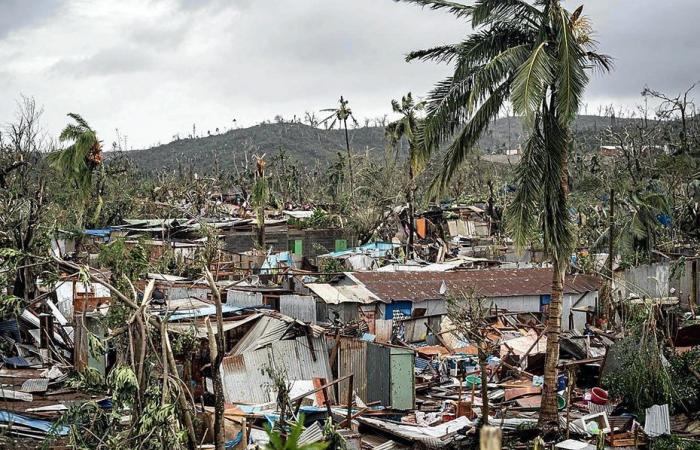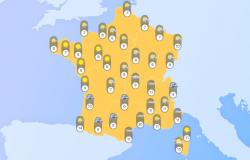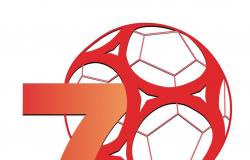Written by manale makhchoun
In Clermont-Ferrand, the Mahorais community lives in anguish after the devastating passage of Cyclone Chido on December 14. Without news of their loved ones, the uncertainty and pain are immense. Faced with the disaster, a surge of solidarity is forming to help the victims of Mayotte. Testimonies of Mahorais united in adversity.
Company
From daily life to major issues, discover the subjects that make up local society, such as justice, education, health and family.
France Télévisions uses your email address to send you the “Society” newsletter. You can unsubscribe at any time via the link at the bottom of this newsletter. Our privacy policy
Saturday December 14, Mayotte was hit by a devastating cyclone. Thousands of kilometers away, Noukia Ahmed-Attoumani watches helplessly a video sent by her mother living on the island. We see her alone, standing among the debris, in an apocalyptic landscape. “Seeing my mother surrounded by all this chaos, it broke my heart. It was so hard to see her, but I knew she was alive,” she says, her voice full of emotion. “The images were shocking. It was as if the world was collapsing before my eyes.“Through the screen, she can see fields of ruins, collapsed houses, uprooted trees.
duration of video: 00h02mn00s
A resident of Mayotte shares her pain after the damage caused by the passage of Cyclone Chido.
The cyclone cut the island off from the world, and Mahorais living outside, like Noukia, had to face a long period of uncertainty. “Saturday morning, we started to worry seriously. When the network went out, I felt lost. I had no news, and time seemed to stretch indefinitely“, she confides. On Sunday, her mother finally manages to make a call via a satellite network from a hill. “The emotion was so strong when I heard her voice. It was an immense relief, but at the same time, she told me that everything was destroyed. Everything she had, everything she knew, no longer existed.”
In pain and distress, Noukia then makes a decision: to act. “From this call, I no longer thought, I knew I had to do something. I contacted all the Mahorese associations in Clermont-Ferrand. We had to come together to collect donations”she explains. This is how the association was born Solidarity Mayotte 63which is now organizing the collection of food, water, clothing and essential products.
In the ballet of gifts, Monisha is concentrated. She also experienced the same anguish. “I spoke to my mother on the phone just before the cyclone. Then, nothing. The network was cut. I panicked, I had no more news. It was as if a part of me had been stolen from me“, she confides. “I came across the voicemail. Meanwhile, images on TV showed the violence of the cyclone. It was like a stab in the heart.“Thanks to a cousin, who was able to get the network, Monisha learned that the situation was catastrophic. “People are without water, without food. My mother told me that she had not been able to shower since the cyclone, that there was no more water, no more clothes, no more nothing. It was a shock to hear that“, she says, her voice choked with emotion. “Hearing my mother in this distress is heartbreaking. We feel so helpless. They are out there, thousands of miles away. There is nothing we can do.”
The difficulties are enormous. “They lost everything. The houses, the crops. There is no more electricity, no more water, no more nothing. It’s not going to get better right away,” she worries. “They told me they have nothing left to eat. People are desperate“.
Abdel, too, has lived in constant worry since the cyclone hit. “My family lives in Mayotte: my parents, my brothers and sisters, my grandparents. Three days before the cyclone, we had been warned, but like every year, we thought it would be a false alarm. But this time, it was real“, he explains. As for many others, the network cutoff was a real shock. “I tried to call every five minutes, but it rang in vain. My niece managed to get a connection in town. She reassured me, but I didn’t hear from my mother until four days later”says Abdel, visibly still marked by anxiety. “It was total anxiety, I didn’t know what was happening. I prayed, I checked every notification, every call. I couldn’t reach my own mother“.
Today, there are still many uncertainties. “The hardest part is that Mayotte depends on its harvests. The cyclone destroyed everything: the banana trees, the cassava plants, the houses. There is nothing left. And international aid is slow to arrive. The recovery of current, it is planned for the beginning of January, but how will they hold out until then? There is no more water, no more food. Time is running out.“, he warns.
Faced with the crisis, a chain of solidarity was created within the Mahorese community of Clermont-Ferrand. Rachidi, another member of the community, says: “We created a WhatsApp group to exchange information on the situation in the villages where our families live. Before, it was to get news. Today, it’s about organizing solidarity and knowing what they need.” More than 300 people are now united in this group, and it continues to grow.
Relatives of residents are trying to get news and organize solidarity via a Whatsapp group.
•
© Manale Makhchoun / FTV
“The Mahorais of Clermont-Ferrand are fighting together for their island. They are united and determined to help. Every day, the momentum of solidarity is growing”concludes Noukia. “We are in contact with three freight forwarders to send donations by containers. The Red Cross and other NGOs are supporting us for delivery”she specifies. But beyond material goods, it is also a strong message that Noukia and the members of the association wish to convey to their loved ones on the island: “They see this solidarity, they see that we do not forget them. And it is vital for them, psychologically. They are fighting against poverty and distress, but knowing that we are thinking of them, that we are there for them, it gives them hope.” If the path remains strewn with pitfalls, Mayotte, although devastated, can count on its children from outside to help it get back on its feet.






